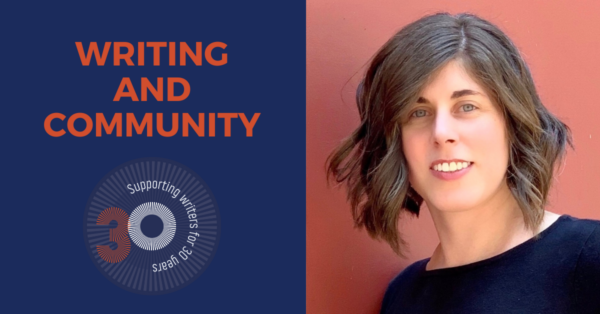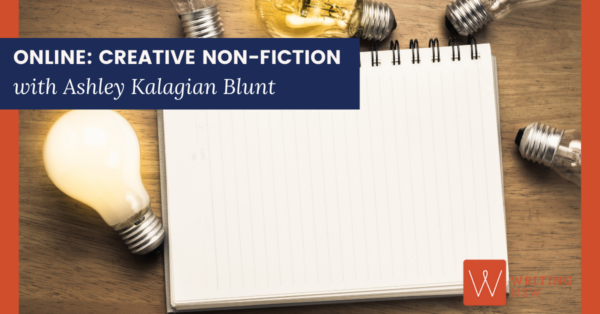You should know why you write. A publisher once asked me exactly that on the phone, why do you write? It took me years to articulate the real reason. Then I distilled it down into one precise sentence.
I write to connect with people.
It’s possibly the most indirect way of connecting, sitting at my desk for hours alone, year after year, noise-cancelling headphones blocking out the world. But it’s the best way of connecting, I believe, for me. It allows time to research, and to sit with ideas. Then, I craft a piece of writing that has a chance of finding readers with whom it resonates.
Just after my memoir, How to be Australian, was published in 2020, a woman got in touch with me on Instagram. She’d read the book and had kind things to say. She lived in Sydney, and her posts made her look fun, like the kind of person you’d want to know. She was from Chicago. She had big Chicago energy, a Magnificent Mile buzz. Her name was Michele. I invited her for a drink.
*
Disconnect
As a teenager, my family moved to Winnipeg, Manitoba, the day before I started high school. My parents bought me an electric blue jacket at Polo Park, the big city mall. I thought it would make me popular, but it just made me visible to bullies at a greater distance.
At least I had my writing. I was so keen that I’d gone to my high school principal to ask if we could have a creative writing course as an elective. He said there wasn’t one on the curriculum. Instead, I wrote random thoughts, sprinkled them with unmetered rhyme and called it poetry. A few of those poems got published in the type of leather-bound collections that featured 200 poets from across the country and cost $50 per copy. It was my dad who first suggested I submit, after finding the callout in the local paper. I’m pretty sure it was also my dad who, four volumes later, said we weren’t going to buy any future copies. It’s discomforting to look back on. None of my family are artists, so my dad’s support meant a lot. But also, my first non-school publications were a vanity scam, so there’s that.
At the back of the leatherbound poetry collections, a biography section listed the contributing authors’ birth years and cities. One evening after school, I went through every name, noting the handful of writers that were my age and from Winnipeg, and searched those names in the phonebook. This was the late 90s, before life was hyper online. I only found one person with a name distinctive enough that I could be sure I was calling her. Her poem was about goats. Twenty-five years later, I still remember the goats.
I was exceptionally shy and calling was as easy as submerging my hand in boiling water, but I did it, I called the number from the phonebook. Why wouldn’t we become friends? And wouldn’t this make a great anecdote, me calling out of the blue, connecting through our shared passion for cringey rhyme? So I called this poet.
The conversation was one of the top five most awkward of my life. Maybe top three. She didn’t understand why I was calling. She must have had friends.
*
Cultivating interest
Because I wanted to live abroad, I fell into teaching. I taught English at a private academy, to Korean kids from wealthy families; in Peru, as a volunteer, to kids from an impoverished community; and, in Mexico, in the glass-walled offices of corporate executives. In Canada, I taught English to migrants struggling to restart their engineering careers in a new culture. In Australia, I taught academic writing to tertiary students.
I loved the intimacy of the classroom and the pleasure of helping students learn. I was less enamoured with administrative demands and the precarity of casual work. Attempting to transition careers, I ended up as a program officer for an executive MBA program. I sat through candidate entrance interviews, listening to professionals describe their accomplishments and aspirations, then went home and cried. I felt alienated and rudderless. I’d lived in Australia five years and had spent most of them researching and writing a book that didn’t work.
The project revealed my lack of both writing skills and understanding of the publishing industry. Working doggedly wasn’t enough. Being a lifelong reader wasn’t enough. My writing was self-indulgent, inward-focused. A topic’s inherent interest to me had no bearing on anyone else’s interest in it. Part of a writer’s work, I came to learn, was finding ways to cultivate others’ interest.
But if I wanted a career as an author, I needed to get savvy about what sorts of books publishers – and readers – were interested in. I would never write something simply because it might be marketable. But if I have five potential projects in mind, why not invest time determining which might have the best chance at publication in a competitive market?
I started exclusively reading new books by Australian authors. I attended book launches and author talks. I joined Twitter to talk to other writers. And, because it was too painful to have a job helping others achieve their dreams while my own withered, I applied for a position at Writing NSW.
The new role meant a 50 per cent pay cut. It also meant working with some of Australia’s best and most enterprising authors, and spending my office hours with people who valued literary culture and were dedicated to supporting it. The job was a daily reminder that writing mattered. And it was a reminder that lots of aspiring writers were like me, struggling to improve their craft and to better understand the industry they wanted to be a part of. I’d thought my lack of inherent talent meant I was a failure. Actually it meant I was ordinary. (This sometimes feels like a synonym for failure).
Even before I took the job, I’d started making use of nearly every service Writing NSW offers. I took pages of notes as an audience member at festivals, and signed up to courses with Maxine Beneba Clarke, Toni Jordan and Walter Mason. I received manuscript assessments from Lliane Clarke and Linda Funnell. I attended Open House events to learn how publishing houses operate, and benefited from editor feedback on my works-in-progress.
At the 2014 Christmas party, I met a few writers who were forming a new writing group. We met monthly in the Henry Lawson room to discuss each other’s submissions. Seven years later, our roster of members has turned over a few times, and our meetings take place online, but their feedback remains essential to my process. And it’s given me the chance to work with some incredible writers. One of our members, Ren Arcamone, received an Iowa Writers Workshop scholarship. Another, James McKenzie Watson, won the 2021 Penguin Literary Prize.
And along the way, two of my own books attracted publishers.
*
On common ground
I loved working for Writing NSW. Dogs chased tennis balls across the Callan Park grounds as I headed into work. Our staff meetings were full of laughter and, sometimes, cake. There were often writers in the building, and the walls hummed with their collective energy.
In the decade since my first visit to Callan Park, I’ve transitioned from aspiring writer to established author. Although chronic illness eventually made an office job impossible for me, I now have the opportunity to teach at Writing NSW. My haphazard career has come full-circle.
The more I read, the more I appreciate the craft of good writing, and the more I recognise I have to learn from my peers. I’ll spend a lifetime in awe of the talents of other authors.
Alongside the satisfaction of the work itself is the reward of connecting with fellow readers and writers. My previous executive MBA role involved a circus of networking events. Shyness continued to foil me, but I struggled mostly because I had no shared values with the people I met there. They cared about business ventures, portfolio growth and overpriced watches. I never knew what to say. Walking into a room of writers is another universe. I know I’ll find common ground.
*
Mudita and a stranger named Michele
These days nearly all my friends are writers. Much of the joy in my life comes from our conversations about books, our introspective lives, and our work. It also comes from witnessing their efforts and celebrating their successes. English speakers adopted schadenfreude from German so we had a shorthand to describe our pleasure at others’ misfortune. The closest we have to a word describing pleasure at the good fortune of others is the Buddhist term mudita, meaning sympathetic or vicarious joy. We don’t use it enough.
Michele, the reader who contacted me through Instagram, also happened to be an aspiring writer. She’s now part of my writing group. We’ve even been on retreat together. Mudita hardly begins to describe how I’ve felt witnessing her writing skills sharpen over the past two years. These days, she signs off our phone calls with ‘love you’, words glowing with deep companionship. I haven’t been able to tell her how much this means to me.
Looking back, I can see my teenage self had good instincts. I was a reader and a writer. None of my high school peers appreciated this, and none of my family connected with it, but it was core to my identity. Now, beyond knowing why I write, I know who I am and how to find, support, and celebrate the fellow writers whose friendship and creativity enrich my life.
Ashley Kalagian Blunt is the author of How to Be Australian, a memoir; and My Name Is Revenge, a collection of fiction and essays, and a finalist in the 2018 Carmel Bird Digital Literary Award. Her writing appears in Australian Book Review, Overland, Griffith Review, Sydney Review of Books, the Sydney Morning Herald, Kill Your Darlings and more. She co-hosts James and Ashley Stay at Home, a podcast about writing, creativity and health, and loves helping writers learn practical skills and develop deeper insights into the craft of writing.

Join Ashley’s course Online: Creative Non-Fiction, Monday 31 October to Friday 9 December 2022, online. Enrol here >>

